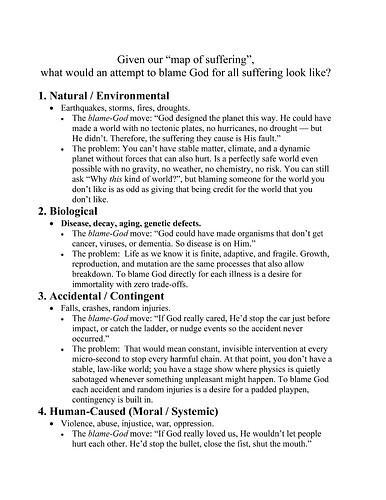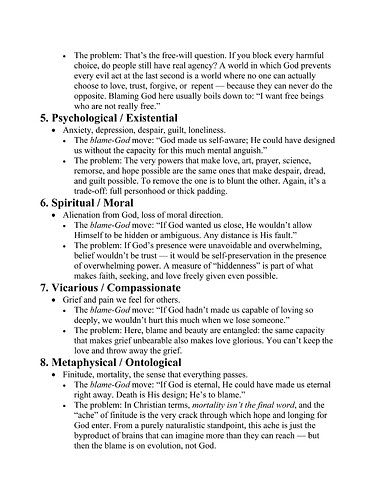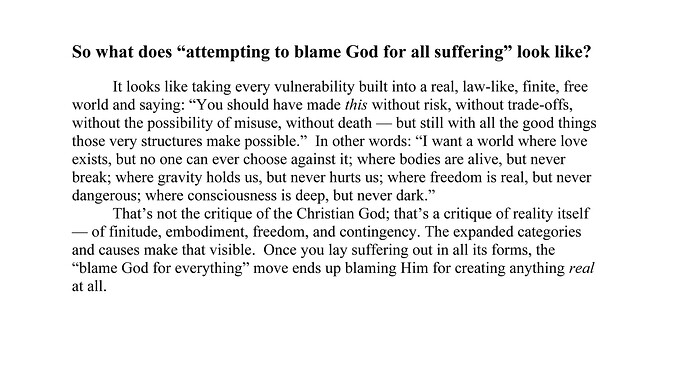With a similar prompt, I mangaged to get this list of “Categories and Causes of Suffering out of ChatGPT”. Can anyone improve on it or add to it”
 Categories and Causes of Suffering
Categories and Causes of Suffering
| Category / Cause | Examples and Theological / Philosophical Interpretation |
|---|---|
| I. Natural (Non-Moral) | Geophysical / Climatic: earthquakes, hurricanes, tsunamis — the cost of a stable, law-bound universe.Biological / Ecological: disease, parasitism, predation, genetic flaws — the price of evolutionary freedom.Cosmic: asteroid impacts, radiation — vulnerability of life in a dynamic cosmos.Entropic / Temporal: decay, mortality — the finite structure of time-bound creation. |
| II. Moral (Human-Caused) | Personal: addiction, vice, self-destruction — misuse of freedom.Interpersonal: cruelty, betrayal, violence — relational corruption of love.Institutional / Systemic: war, oppression, inequality — collective sin and structural evil.Negligence: failure to prevent harm — moral omission, moral blindness. |
| III. Existential / Psychological | Anxiety, guilt, loneliness, despair, loss of meaning — the suffering intrinsic to self-conscious, finite beings; the “dark night of the soul.” |
| IV. Relational / Vicarious | Grief: sorrow over another’s death.Empathic pain: compassion that suffers-with.Sacrificial love: choosing to bear another’s burden — redemptive suffering as imitation of Christ. |
| V. Metaphysical / Ontological | Finitude: awareness of mortality.Alienation from God / Goodness: estrangement as a universal ache.Imperfection of the world: tension between being and oughtness — “the groaning of creation” (Romans 8:22). |
| VI. Spiritual / Demonic (Traditional) | Temptation, oppression, affliction by dark powers — symbolizes the radical disorder or opposition to divine harmony in creation. |
| VII. Redemptive / Transformational | Suffering used to forge virtue, humility, compassion — “soul-making” (John Hick). Christ’s Passion: the prototype of suffering transfigured into love. |
 Optional Summary Statement (for top or bottom of chart)
Optional Summary Statement (for top or bottom of chart)
All suffering arises from tension between created freedom and divine order.
Some suffering is destructive (disintegrative, chaotic); some is redemptive (integrative, transformative).
The mystery of faith lies in discerning which is which — and trusting that none is beyond the reach of meaning.



